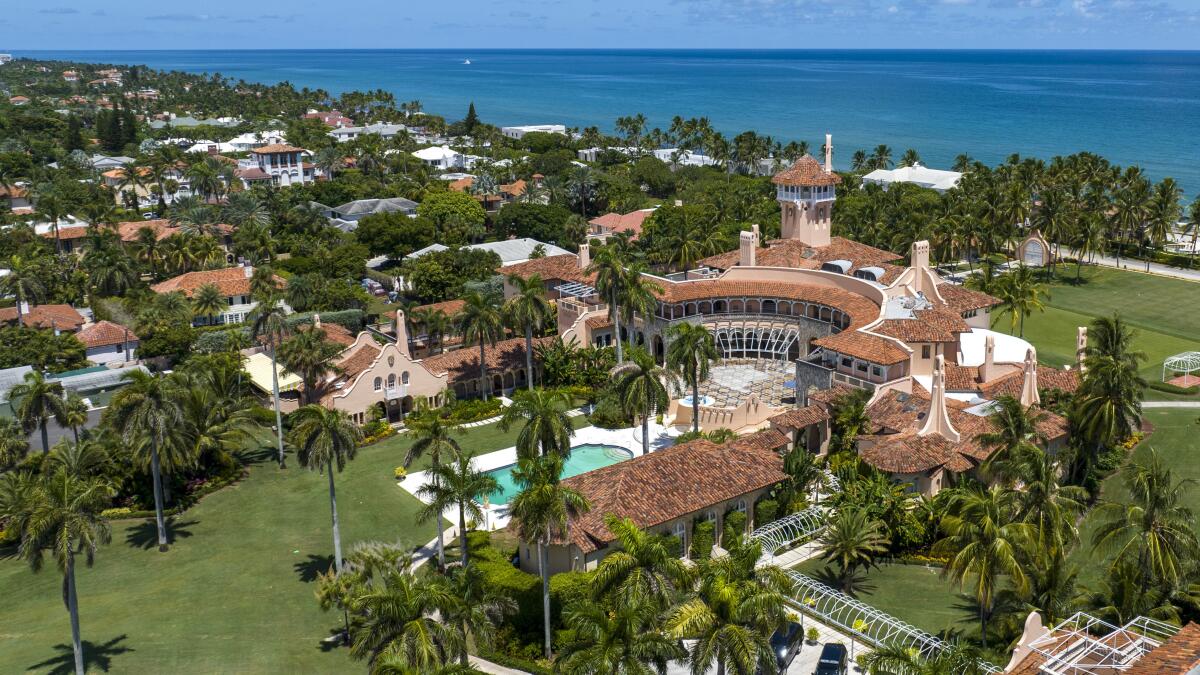In defeat for Trump, Supreme Court declines to intervene in dispute over classified documents

- Share via
WASHINGTON — The Supreme Court will not intervene in a fight between the Justice Department and former President Trump.
The court announced its decision in a one-sentence order released Thursday. No dissents were made public.
Last week, Trump asked the Supreme Court to intervene and allow a special master to examine roughly 100 classified records found during the court-approved search of his Florida home in early August. The Justice Department is investigating alleged retention of classified information, theft of government documents and obstruction of justice.
The U.S. 11th Circuit Court of Appeals had granted an expedited appeal of a federal judge’s decision to appoint a special master. The Justice Department has argued that its internal review of documents potentially subject to attorney-client privilege was sufficient and that a special master should not be deciding questions of executive privilege.
Trump’s legal team has argued that the FBI review cannot be trusted and that a Supreme Court intervention was necessary in the interest of transparency, given the unprecedented search of a former president’s home — though the Trump team itself is accused of lack of transparency in the case.
The stay on the district judge’s order allowing the special master to review about 100 classified documents found in the search was granted pending the appeal.
The Aug. 8 court-approved search of Trump’s Mar-A-Lago estate was prompted by evidence that Trump hadn’t fully complied with a May subpoena ordering him to turn over any classified documents in his possession. Agents recovered more than two dozen boxes in the search containing more than 200,000 pages.
The classified materials include some of the most closely guarded secrets held by the U.S. government.
The Justice Department has said in previous court filings that special investigators with high security clearance had to be brought in to process the evidence.
More to Read
Get the L.A. Times Politics newsletter
Deeply reported insights into legislation, politics and policy from Sacramento, Washington and beyond. In your inbox twice per week.
You may occasionally receive promotional content from the Los Angeles Times.









